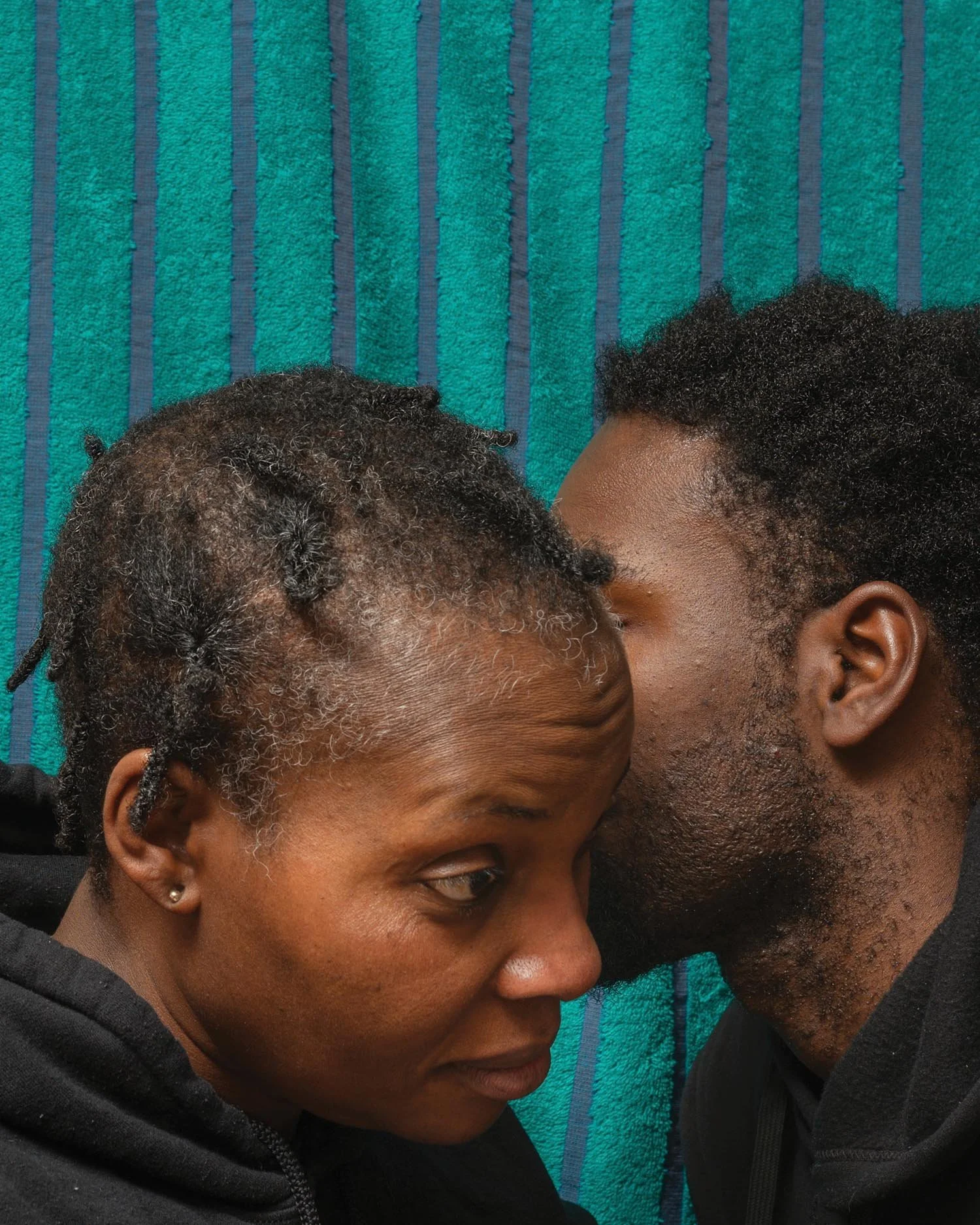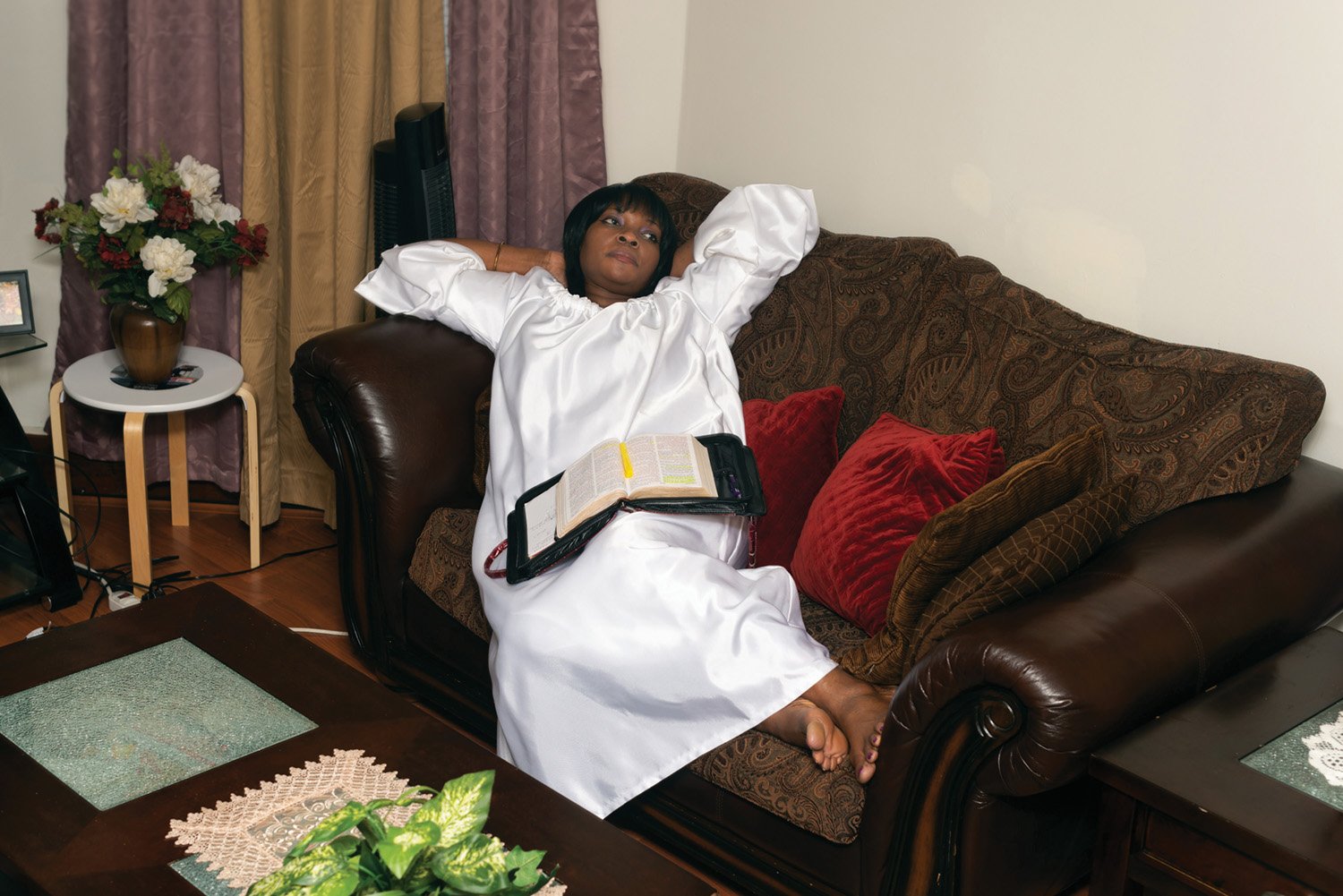Claudio Eshun
Sacred Portals of Entry
It takes a whole village to raise a child. Now, imagine raising three. Rooted in community, conversations, and connections, the story of what many call the “American Dream” stems from the lionheart of a caring mother.
Through the eyes of my mother, Becky, my lens on the world became more graceful. As a once-stateless person who had to learn how to navigate institutions, cultures, and languages, my curiosity to connect to my work merged from my distinct identities as an African, black, hypervisible, and invisible man in America.
My family history and its reclamation of a new home positioned us within a context where the construction and deconstruction of identities and tensions that occur as a result of adaptation, assimilation, and our attempts to accustom ourselves to the notion of alienation have had a profound impact on my work. In my continuing body of work, Elegant Alien, I reflect on and reimagine scenes from my personal history: I see images from Ghana and Italy and more recently from America. I incorporate all these visual languages into the images I create.
Not belonging here nationally but locally helped me stage tableaux scenes that elicit emotional registers of individual experience. Pioneering conversations through our differences and similarities, such as what Carrie Mae Weems started and other visual storytellers like Deana Lawson continue, is the dialogue of community, identity, and grace. The challenges of others put my personal, familial, and judicial hardships in perspective.
In creating these images, I am in conversation with my family, friends, and the many connections I made in Worcester, Bridgewater, Plymouth, Hanover, Brockton, Cambridge, Boston, and throughout New England. I listen closely to their stories about their experiences and lives that both overlap with and differ from my own— I am asked to challenge, yet be sensitive to, the stereotypes in Western, African, and afro-descendant portraiture. The initial conversations I had with my mom brought tremendous growth in our relationship, my relationship with others, and within myself.
My camera mediates conversations that illuminate the depth of this multiple existence and crystalizes it in moments of humanity that can be found in each distinct narrative on Blackness to the point we turn strangers into friends. Sometimes business partners. For example, I connected with the Frame Center via a job posting from my alma mater, Bridgewater State University (BSU), met Deniz, Chief of staff at BSU, who believed in my photography career and landed a teaching position at Harvard University from Professor Sharon Harper, who was a visiting artist/lecturer attending MassArt for the day. The lens of my mother shaped how I sense and navigate daily providing a constant reminder to always stay curious to learn. Learning can be a fruitful experience, but there are dark moments that are quite insightful, which is why presenting your most authentic version of yourself resonates with people. Good or bad.
My name is Don Claude, join me in my therapeutic yet challenging journey with portraiture.









